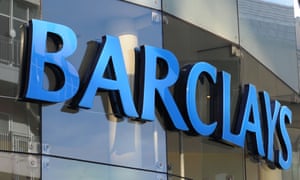
Seven local councils including Greater Manchester and Leeds have filed a legal claim against Barclays, which is linked to about £500m in complex bank loans.
The use of high-cost loans has come under fire from campaigners and the shadow chancellor, John McDonnell, who say councils have been left on the hook for expensive interest payments that put further pressure on local services already squeezed by austerity and spending cuts.
A high court claim has been lodged over the terms of the lender option borrower option loans, known as lobos, offered by Barclays between 2006 and 2008. The claim centres on how interest rates on those loans were influenced by Libor, the interbank lending rate. Barclays is among the lenders that have been fined for Libor rigging since the banking crisis.
The councils say the banks knew customers would rely on Libor rates, which Barclays was accused of lowballing, when deciding whether to enter into contracts. Barclays then has the power to raise interest rates over the lifetime of the lobo loans as part of the central terms.
The councils have not demanded a specific financial figure in their court filings but are seeking permission to exit existing loans without incurring hefty fees and the restitution of sums paid in relation to the lobo loans, as well as interest payments and other costs.
The legal case has been filed on behalf of councils in Leeds, the Greater Manchester combined authority, Newcastle, North East Lincolnshire, Nottingham, Oldham and Sheffield.
These seven councils are believed to have borrowed up to £573m in lobo loans from Barclays, according to data collected through freedom of information requests by the Debt Resistance UK campaign group.
The Guardian understands that the councils’ claim is related to loans that account for a significant portion of the total sum.
Lobos were popular among councils in the early 2000s as they came with teaser interest rates that kept payments low over the short term. They became expensive in the long term, however, as austerity and wider spending cuts took hold.
The loans gave banks the power to raise interest rates at certain points over their lifetime, accounting for the “lender option” of the loan agreement. Although borrowers had the option of rejecting those terms, it would trigger a clause forcing them to immediately repay the loan in full.
In 2016, Barclays scrapped lobos by turning them into fixed-rate loans but interest payments were not necessarily affected and breakage costs were only slightly reduced.
Joel Benjamin, an activist with Debt Resistance UK, said his organisation was “heartened to see local councils filing legal action against Barclays related to lobo loans, which has resulted in hundreds of millions of pounds being skimmed from struggling town hall budgets – seven years on from Barclays and a cartel of global banks being fined for conspiring to rig Libor interest rates in 2012”.
Barclays declined to comment due to the ongoing legal proceedings.
[“source=theguardian”]



